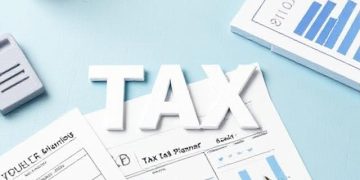Debt Management can be daunting, but with the right strategies and mindset, you can take control of your finances and build a brighter financial future. In this article, we will outline key strategies for effective debt management, from creating a budget to paying down debt, so that you can achieve financial freedom and peace of mind.
Strategies for Effective Debt Management
Create a Budget
The first step in effective debt management is to create a budget. A budget lays out your monthly income and expenses, allowing you to see where your money is going and where you can make adjustments. Start by listing all sources of income, such as your salary, bonuses, or side hustle earnings. Then, list all of your monthly expenses, including rent/mortgage, utilities, groceries, transportation, and entertainment. Be sure to set aside money for savings and emergency fund as well.
Once you have a clear picture of your finances, you can identify areas where you can cut back on spending and allocate more money towards paying down debt. This is a crucial step in effective debt management, as it allows you to prioritize debt repayment and avoid falling into further debt.

Consolidate Debt
If you have multiple debts with high interest rates, consider consolidating them into a single loan with a lower interest rate. Debt consolidation can make it easier to manage your debt by combining multiple payments into one monthly payment, typically with a lower interest rate. This can help you save money on interest and pay off your debt faster.
There are several options for debt consolidation, including personal loans, balance transfer credit cards, and home equity loans. Compare the terms and interest rates of each option to find the best solution for your financial situation. Keep in mind that debt consolidation is not a solution for everyone, so be sure to weigh the pros and cons before moving forward.
Pay Down Debt
Once you have created a budget and consolidated your debt, it’s time to focus on paying down debt. There are two common strategies for debt repayment: the debt snowball method and the debt avalanche method.
The debt snowball method involves paying off your debts from smallest to largest, regardless of interest rate. This method can provide a sense of accomplishment and motivation as you see smaller debts disappearing quickly. The debt avalanche method, on the other hand, involves paying off debts with the highest interest rates first. This method can save you money on interest over time, but it may take longer to see progress compared to the debt snowball method.
Choose the method that works best for your financial situation and commit to making consistent payments towards your debt. Consider increasing your income with a side hustle or selling items you no longer need to put more money towards debt repayment. Remember, every extra dollar you put towards debt brings you one step closer to financial freedom.
Build an Emergency Fund
One of the keys to effective debt management is building an emergency fund. An emergency fund can protect you from unexpected expenses, such as car repairs, medical bills, or job loss, that could derail your progress towards debt repayment.
Start by setting a realistic savings goal, such as three to six months’ worth of living expenses, and automate your savings by setting up automatic transfers from your checking account to your savings account. Keep your emergency fund in a separate account that is easily accessible in case of emergency, but not so accessible that you’re tempted to dip into it for non-essential expenses.

Monitor Your Progress
As you work towards paying down debt and building your emergency fund, it’s important to monitor your progress regularly. Track your spending, savings, and debt repayment in a spreadsheet or budgeting app to see how you’re doing and make adjustments as needed.
Celebrate your wins, no matter how small, and stay motivated by setting milestones and rewards for yourself along the way. Remember, debt management is a journey, not a sprint, so be patient and persistent in your efforts to achieve financial freedom.
Conclusion
Mastering your money and effectively managing your debt requires discipline, determination, and a solid plan. By creating a budget, consolidating debt, paying down debt, building an emergency fund, and monitoring your progress, you can take control of your finances and build a brighter financial future.
Remember, everyone’s financial situation is unique, so it’s important to tailor these strategies to fit your individual needs and goals. Stay focused, stay positive, and stay committed to your financial success. With the right strategies and mindset, you can achieve financial freedom and peace of mind.

















































